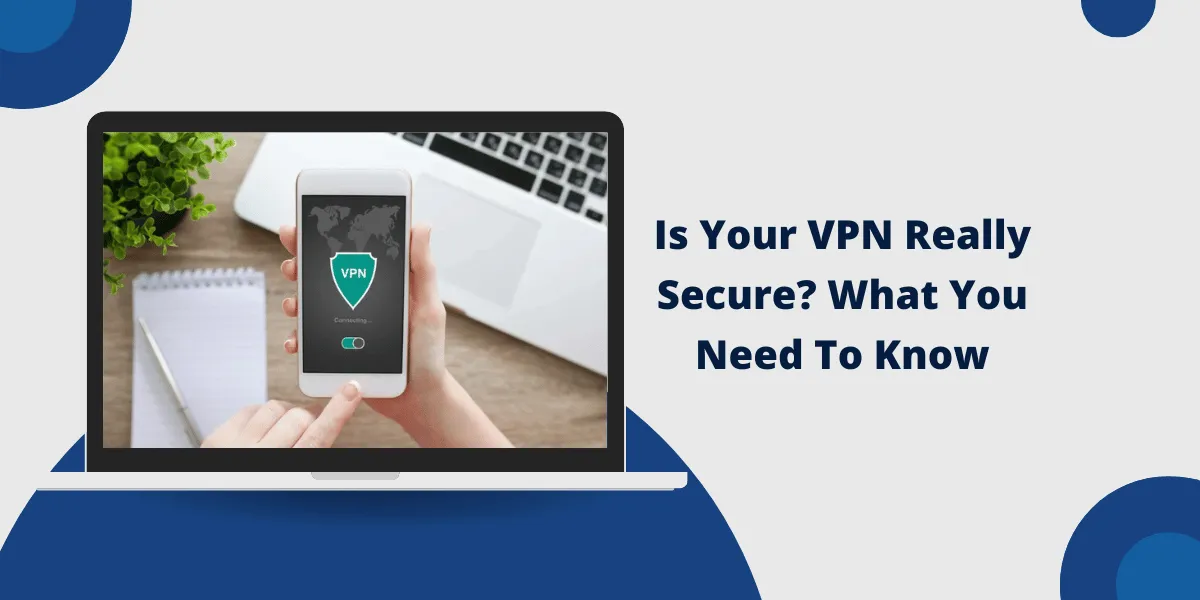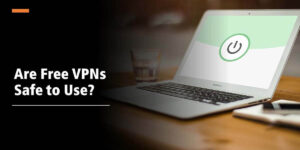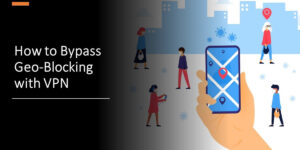This comprehensive guide will walk you through everything you need to know about evaluating VPN security, privacy policies, protocols, encryption standards, and more. I’ll also provide tips on choosing the most secure VPN for your needs. Read on to learn how to determine if your VPN provider is truly trustworthy or if their privacy claims are just marketing hype.
Key Takeaways
- VPNs encrypt your internet traffic and route it through remote servers, hiding your IP address and location. This prevents snooping by hackers, ISPs, or government agencies.
- Look for VPNs that offer military-grade encryption like AES-256 bit or above, along with secure protocols like OpenVPN or IKEv2/IPSec. Avoid weaker protocols like PPTP.
- VPN providers should have a strict no-logs policy, not track bandwidth or sessions, and be located in privacy-friendly countries.
- Leaked DNS requests, WebRTC leaks, and IPv6 leaks can compromise your anonymity. Choose VPNs that provide leak protection.
- VPNs with port forwarding, SOCKS5 proxies, and Tor over VPN allow access to more restricted content and enhanced security.
- Speed, reliability, number of server locations, and customer support should also be factors in your VPN selection.
How VPNs Work to Provide Security
A VPN creates an encrypted tunnel between your device and a remote server operated by the VPN provider. Your internet traffic is routed through this tunnel, hiding your IP address and physical location. The request appears to originate from the VPN server.
This prevents your internet service provider (ISP), government agencies, hackers, and advertisers from monitoring your online activity and identifying you. The top VPN services use strong 256-bit AES encryption that even security agencies can’t crack.
VPNs also mask your browsing habits from your ISP, allowing you to bypass throttling, censorship and access geo-restricted content. When choosing a paid VPN, look for providers who don’t log any user activity or connection timestamps.
What Security Protocols Should My VPN Use?
One of the most important criteria for rating VPN security is the protocol it uses to establish encrypted connections. Here are the main protocols, ranked from most to least secure:
- OpenVPN: Open-source protocol that uses 256-bit AES encryption by default. Provides the best mix of speed and security. Runs over UDP or TCP.
- IKEv2/IPSec: Native VPN protocol built into iOS, Android, Windows and Blackberry devices. Very secure but can be slower than OpenVPN.
- WireGuard: Emerging protocol focused on speed and simplicity. Uses state-of-the-art cryptography like Curve25519 and ChaCha20.
- L2TP/IPSec: Native VPN protocol built into most operating systems. Slower speeds but still highly secure.
- SSTP: Proprietary Microsoft protocol with 256-bit encryption. Good speeds but limited configuration options.
- PPTP: Very outdated protocol with weak 128-bit RC4 encryption. Not recommended due to security flaws.
The top commercial VPN services like ExpressVPN, NordVPN and Surfshark all offer OpenVPN connections using AES-256 encryption as standard. This ensures optimal security and speed. Steer clear of free VPNs using weaker protocols like PPTP.
Does My VPN Provider Have a Strict No-Logs Policy?
Before selecting a VPN, you should thoroughly research their logging policies. The most trustworthy VPNs have a strict no-logging or zero logs policy, meaning they do not track or store any user activity or connection logs.
This prevents them from matching your IP address to browsing sessions or turning over data to authorities. Here are some key points to look for in a zero logs VPN:
- No connection logs, including no timestamps of when you connected to their servers
- No logging of incoming and outgoing IP addresses used in sessions
- No bandwidth/data usage logs – they don’t track how much data you use
- No session logs. They do not monitor your online activities or the sites you visit.
- No other metadata logs, such as device details or location.
- Regularly audited by external agencies to verify no-logs claim
- Located in countries with strong privacy laws like Panama or Switzerland
What Encryption Standard Should I Look For?
Military-grade AES 256-bit encryption is the gold standard for VPN security. AES (Advanced Encryption Standard) is an NSA-approved symmetric encryption algorithm that uses a 256-bit key for robust protection.
Top-tier VPNs like NordVPN and ExpressVPN use AES-256 encryption combined with a 2048-bit RSA key for handshake authorization. This dynamic pairing prevents brute force from cracking the encryption key.
Other secure standards include AES-128, which offers a 128-bit key, and Blowfish CBC with a 448-bit key. But at minimum, look for VPNs using AES-256 or stronger for optimal security. Weaker standards like DES, 3DES, RC4, and SEAL cannot be considered secure by today’s standards.
Does My VPN Provider Protect Against DNS, WebRTC, and IP Leaks?
Even when using a VPN, flaws in your internet connection can allow your IP address or location to leak out. The most common leak issues are:
- DNS Leaks: Your computer may bypass the VPN tunnel and send DNS lookup requests to your ISP or default DNS server. This exposes your IP address.
- WebRTC Leaks: WebRTC communications in your browser can reveal your public IP address directly.
- IPv6 Leaks: If your ISP assigns you an IPv6 IP, it can bypass the VPN and expose your identity.
Fortunately, the best VPN services offer leak protection to prevent all of the above issues. Features to look for include:
- Encrypted DNS requests or DNS leak prevention to avoid ISP snooping.
- WebRTC leak protection that blocks browser WebRTC activity or funnels it through the VPN tunnel.
- IPv6 leak protection that disables IPv6 traffic if you are assigned an IPv6 IP by your ISP.
- Kill switch feature that shuts off internet access if the VPN connection drops.
Without leak protection, your VPN tunnel has holes that can compromise your anonymity. Make sure your provider addresses all leak issues.
Does My VPN Mask My Location and Unblock Geo-Restricted Content?
A key benefit of using a VPN is being able to mask your physical location and bypass geo-blocks to access restricted content from anywhere. Streaming platforms like Netflix actively block VPNs known to circumvent their geo-restrictions.
To ensure your VPN provides reliable location-spoofing and geo-unblocking, consider these tips:
- Test if you can access US Netflix or BBC iPlayer from different locations to verify it works
- Choose VPNs with a large number of worldwide servers to optimize performance
- See if the VPN offers obfuscated servers and protocols to bypass VPN blocks
- Ask if they provide alternate VPN server recommendations if one doesn’t connect
- Check for useful features like multi-hop connections, SOCKS5 proxies, and port forwarding to improve access
How Much Bandwidth Does My VPN Allow? What is Their Refund Policy?
Most VPN providers offer unlimited bandwidth without speed throttling or data caps. This allows you to browse, stream, and torrent without worrying about hitting a limit. Before subscribing, confirm the VPN you are considering places no restrictions on bandwidth usage.
It’s also worth checking if the VPN offers a money-back guarantee period. Top services like ExpressVPN and CyberGhost VPN provide an initial 30-day refund window. This allows you to test the VPN’s performance and speeds risk-free.
Avoid “lifetime” VPN deals that seem too good to be true. Make sure to compare pricing for 1 month, 6 months and 12 months to see what deals they offer for longer subscriptions. Often the biggest savings come from committing to 6 months or a year up front.
How Many Server Locations Does the VPN Have?
The number and spread of VPN server locations impact both speed and ability to unblock geo-restricted content. In general, the more countries and cities the VPN has servers in, the better the performance and reliability.
Here are some key considerations regarding server locations:
- Look for VPNs with servers in 50+ countries to allow you to switch locations easily
- More localized servers in major cities improve speeds by reducing distance to endpoints
- Widespread server distribution improves uptime and reduces load on individual servers
- Locations in privacy-friendly jurisdictions like Switzerland help reduce data retention risks
- Check they have servers in countries you need to access (e.g., US & UK for Netflix)
Leading VPNs like NordVPN, Surfshark, ExpressVPN and CyberGhost have over 3000 worldwide servers between them in places like Europe, Asia, Australia, South America and Africa. This extensive reach ensures speedy connections from anywhere.
Does My VPN Provider Offer Split Tunneling or Multi-Hop?
Split tunneling and multi-hop are two advanced connection capabilities offered by some VPNs to enhance privacy or optimize performance.
Split Tunneling allows you to route some internet traffic through the VPN tunnel while excluding specific apps and websites, sending their connections directly through your regular network. This prevents overloading the VPN while maintaining protection for your sensitive traffic only.
Multi-hop connections route your traffic through two or more VPN servers operated by the provider. As data hops between multiple servers, this provides an extra layer of encryption and masks your originating IP address more thoroughly.
If you need incredibly stringent privacy safeguards or want to optimize VPN load performance, providers like ExpressVPN, NordVPN, and VyprVPN offer both multi-hop and split tunneling features. Not all VPNs offer these, though, so check if they are available.
Does My VPN Work With Streaming Services Like Netflix and Torrenting?
Many people use VPNs to access geo-restricted streaming content on platforms like US Netflix, Hulu, BBC iPlayer, and Amazon Prime Video. However, streaming sites actively block the IP addresses of VPN servers known to bypass their geofencing.
The best VPNs for streaming have large fleets of servers and proprietary technologies like obfuscated servers and optimized protocols to avoid blocks. ExpressVPN, CyberGhost, NordVPN and Surfshark, in particular, work reliably with US Netflix.
Torrenting is another popular VPN use case, allowing anonymous P2P downloading. To avoid bandwidth throttling when torrenting, use VPNs that fully allow and support torrenting on their servers. Some even optimize certain servers specifically for high-speed torrenting.
How Does the VPN Handle P2P and BitTorrent Traffic?
As mentioned above, many people use VPNs for anonymous peer-to-peer (P2P) torrent downloading of copyrighted material. While this is an ethical gray area, reliable VPNs should clearly state their policy regarding P2P/torrent traffic.
Better VPN providers allow torrenting on all servers to avoid hassles. Others designate specific optimized servers for P2P usage. Avoid VPNs that block torrenting altogether or throttle speeds on P2P connections. This defeats one of the key advantages of using a VPN.
It’s worth noting no VPN provider can protect you from copyright infringement notices from agencies monitoring torrent swarms. While your ISP won’t see your activity, copyright watchdogs still can. VPNs anonymize torrenting but do not make it 100% legal and consequence-free.
What is the VPN’s Logging Policy for Payment Data?
Reputable VPN providers should use trusted third-party payment processors like Stripe or PayPal to handle purchases. This allows anonymous one-time payments without exposing your financial details.
Additionally, they should have a transparent policy about whether they store any payment-related logs, such as:
- Billing address
- Email used for purchase
- Credit card details like numbers or CVV codes
- PayPal or other processor transaction IDs
Does My VPN Provide a Kill Switch and IPv6/DNS Leak Protection?
Earlier, we discussed why DNS, IPv6, and WebRTC leaks can expose your IP address and compromise VPN security. Along with leak prevention, a “kill switch” is an important fail-safe.
If your VPN connection drops, the kill switch instantly cuts off the device’s internet access altogether. This prevents your computer defaulting back to your unprotected ISP connection. Without a kill switch, you can be exposed if the VPN drops out.
The most secure VPN clients have both a kill switch and technology to block IPv6/DNS/WebRTC leaks built-in. This way if the VPN fails, you won’t start transmitting data outside of the tunnel. Leak protection and a kill switch should be baseline requirements for any decent VPN service.
Does the VPN Provide a Socks5 Proxy Service? What About Port Forwarding?
SOCKS5 web proxies and port forwarding features can enhance VPN privacy and flexibility:
SOCKS5 proxies funnel web traffic through an encrypted connection to the SOCKS5 server operated by the VPN provider. This adds another layer of privacy. Some VPNs like ExpressVPN and NordVPN offer proprietary SOCKS5 proxy services.
Port forwarding allows you to remotely connect to a device on your home network while using the VPN by opening inbound ports on the VPN server. For example, securely accessing files on a remote desktop computer. This is an advanced feature that not all VPNs support.
Additional privacy features like SOCKS5 and port forwarding add value and functionality. If you need these capabilities, check the VPN service that provides them. Some even allow the VPN to be chained alongside Tor for maximum anonymity.
What is the VPN’s Stance on BitCoin or Cryptocurrency Payments?
Some VPN providers accept anonymous cryptocurrency payments like Bitcoin, Monero, or Ethereum. This allows paying without any linked payment records. If you prefer crypto over credit card payments, look for VPNs that support major cryptocurrencies.
However, be aware that crypto payments alone don’t make a VPN untraceable. The VPN provider can still monitor and log your actual usage and traffic. Crypto payments merely anonymize your billing details, not your browsing activity. You still need to choose a reputable no-logs VPN to ensure full privacy.
Make sure the provider clearly states how long they retain crypto payment details as well. And only pay crypto to reputable providers – shady fly-by-night VPNs should be avoided.
Is Port Forwarding Available? Can I Connect to a Home Computer Remotely?
As mentioned earlier, port forwarding is an advanced VPN feature that lets you connect to a computer or device on your home network remotely using the VPN tunnel. This requires configuring inbound ports to forward through the VPN server IP to your device’s local IP.
Port forwarding has several uses:
- Remotely access files and applications on a home or office desktop computer while on the go.
- Debug servers or applications residing on your home network from outside.
- Play multiplayer games while masking your IP and location.
- Connect remotely to smart home devices like security cameras that are on your local network.
Does the VPN Have an Internet Kill Switch Feature?
As discussed earlier, an Internet kill switch is an important fail-safe that should be standard on all reliable VPN clients. If the VPN connection unexpectedly drops, the kill switch will instantly disable the device’s internet access.
This prevents data leaks, as without the kill switch, your device may reconnect through your unprotected home WiFi or mobile data if the VPN fails. Your IP and traffic would then be exposed.
Having an automatic kill switch prevents this by cutting off all internet access when the VPN drops until you manually reconnect. This ensures there are no periods where your true IP and traffic are visible.
Can I Use Public WiFi Securely With the VPN?
Free public WiFi networks in places like cafes, airports and hotels pose major security risks, as they are unencrypted. Your browsing activity and data can easily be snooped on public WiFi by hackers nearby.
A VPN allows you to use public hotspots safely by encrypting all your traffic. Combined with the VPN hiding your IP address, public WiFi snooping on your browsing activity is virtually impossible as everything is secured in an encrypted tunnel.
Just make sure to choose reliable VPN apps for your desktop or mobile devices to stay protected on public networks. Turn the VPN on before connecting to public WiFi for maximum security.
Does the VPN Work in Restrictive Countries and Networks?
VPN websites and apps are often blocked in restrictive countries like China, UAE, Turkey, Iran, and Russia. Citizens face surveillance and censorship from regimes and ISPs. Unfortunately, many popular VPNs are blocked and blacklisted.
Users in these countries need VPNs that provide obfuscated servers and stealth protocols to bypass blocks. For example, NordVPN offers obfuscated servers, and providers like ExpressVPN are more resistant to firewalls.
Even in democratic countries, some restrictive networks block VPNs, like those at universities, schools and workplaces. Using VPNs with obfuscation can help bypass these blocks to protect your privacy.
Does the VPN Have Fast Server Switching and Speedy Performance?
The larger the VPN provider’s server network, generally, the better the speeds, as you can connect to servers closer to your location. On the VPN app, they should allow easy switching between server locations to find the fastest options.
Look for services that optimize servers for P2P/torrenting, streaming, and other data-heavy tasks if you need extra speed for those use cases.
Speed considerations also include how many simultaneous connections or devices the VPN allows per account. Typically, this ranges from 3 to 10 devices. The more devices you plan to use, the more bandwidth you’ll need.
Does the VPN have Routers I can Install it on? What About VPN Compatibility?
Ease of use and broad device/platform compatibility are also important factors. The top VPNs offer native apps for Windows, Mac, iOS, Android and Linux so you can install on all your gadgets.
Beyond this, the most user-friendly VPNs provide pre-configured router firmware or apps to install the VPN service directly onto routers. This allows for the protection of smart TVs, gaming consoles, and other connected devices that don’t run traditional VPN apps.
Setting this up provides whole-home or office VPN protection via your router. Leading services like ExpressVPN, NordVPN, and Surfshark provide user-friendly router installation instructions.
How Strong is the VPN Provider’s Customer Support and Refund Policy?
Reliable customer service and support resources are the mark of a quality VPN provider. Before purchasing a VPN subscription, check out their support site for tutorials, troubleshooting guides, and FAQs.
You want to choose VPNs that offer 24/7 live chat and email support in case you do run into connection issues or have questions. The top providers like ExpressVPN also provide helpful setup guides and video tutorials for different devices and routers.
A 30-day or longer refund period is also very useful. This allows you to test if the VPN works well for streaming, torrenting and other purposes with the option to get a refund if not satisfied.
Does the VPN have Third-Party Audits and Transparency Reports?
Reputable VPN providers commission frequent independent audits of their infrastructure and no-logs policies by outside cybersecurity firms. These audits verify they follow privacy best practices and do not log/store user activity.
Transparency reports outlining requests from law enforcement and copyright agencies are another sign of a trustworthy VPN company. Only a tiny fraction of users are ever investigated, and with strict no-logs policies, VPNs have little user data to provide anyway.
Look for services like ExpressVPN and NordVPN that publish the findings of external audits and summarize transparency report requests. While not definitive, third-party auditing does add accountability.
Should I Use a Free or Paid VPN? What Are the Differences?
Free VPNs may seem appealing but usually come with major catches. Free providers make money by logging activity, injecting ads, selling your bandwidth and even installing malware in some cases. Almost all free VPNs have serious trust and security flaws.
On the other hand, the top paid VPNs like ExpressVPN, NordVPN, CyberGhost, and Private Internet Access have air-tight no logging policies and use business revenues to fund advanced security features you won’t get with free alternatives.
Paid VPNs also offer much faster speeds, more server locations, better apps, 24/7 customer support, and guarantees like 30-day refund policies. With deals as low as a few dollars a month, premium VPNs are worthwhile investments in your privacy and security.
Final Thoughts
Choosing a VPN that you can trust to protect your privacy is critical. I hope this comprehensive guide gave you the right criteria to evaluate VPN security and policies. The keys are strict no-logging policies, top encryption, extensive server networks, strong leak protection, and independent transparency audits.
Invest in a premium VPN like ExpressVPN or NordVPN, and be skeptical of free VPNs making big promises with no accountability. With the right VPN, you can securely browse on public WiFi, unblock sites and apps no matter where you are, and avoid snooping by governments, hackers, and even your own ISP. A quality VPN lets you take control of your internet privacy and security.
FAQs
Can a VPN be hacked?
Although theoretically feasible, breaking into a Virtual Private Network (VPN), particularly one that employs strong encryption and secure protocols, is highly complex and challenging.
How can I ensure my VPN is secure?
Regularly test it for leaks, use a service with strong encryption and secure protocols, and choose a provider with a strict no-logs policy.
What do I do if my VPN is leaking?
Try reconnecting to the VPN or switching to a different server. If the problem persists, contact your VPN provider or switch to a more secure service.
Is a paid VPN more secure than a free one?
While not always the case, paid VPNs often provide better security features and more reliable performance than free ones.
Should I always keep my VPN on?
To ensure maximum privacy and security, it is advisable to maintain an active Virtual Private Network (VPN) connection during online activities. Nevertheless, there could be circumstances when disabling the VPN may become necessary, such as when accessing particular local services or websites incompatible with the VPN configuration.

 Verified A Professional Content Writer
Verified A Professional Content Writer
Riha Mervana is a professional content writer at SearchVPN.org, with extensive experience crafting engaging and informative content. She has established herself as an expert in the VPN industry, creating content that educates readers on the importance of online privacy and security.



